It will be difficult for many Dominicans to deny their African ancestry outside of their country because by most standards, especially in North America and Europe, many of them look and are considered ‘Black.’ Many Dominicans possess phonotypical features ascribed to ‘Blacks’ such as darker complexions and curly hair. Nokho, the notion of ‘Blackness’ in North America varies vastly from that in the Dominican Republic (DR). While many North American adhere to the ‘one drop rule’, in which people who to have ‘one drop’ of African blood is considered to be ‘Black,’ in the DR, the term ‘Black’ or the notion of being African is rarely mentioned, let alone accepted as part of an individual’s makeup. Many Dominicans refer to themselves as ‘Indian,’ despite being of African, Awarwak and Spanish ancestry and categorize themselves in terms of the various colour hues; “oscuro” for the darkest skinned, “canela” for those of medium hue, futhi “claro” for those with the lightest complexions. These categories also correlates with their established social hierarchy, with those possessing lighter hues situated at the top. Nokho, the term ‘black; is rarely ever used unless it relates to ‘outsiders’ such as their Haitian counterparts.
As a person who is proud of her African ancestry, I could not help but react with disappointment at the dominant mentality espoused by many Dominicans. To me, a denial of one’s ancestry and roots is the ultimate manifestation of self hate. Nokho, as with most issues relating to race and culture of colonized people, everything must first be placed within its historical context in order for one to gain an understanding of the rationale behind why people in the DR do not identify themselves with their African roots.
The Dominican Republic shares the island of Hispaniola with Haiti and the two nations have always had a precarious relationship. Haiti gained it’s distinction as the first Black led Republic in 1804 after slaves led a successful revolt against the French. This also resulted in Haiti’s succession over the entire island, which resulted in it having rule over its then predominantly Hispanic Dominican Republic for 22 Eminyakeni. The Spanish colonized the DR and after they gained victory over the Haitians in 1844, they have made it a point to identify solely with their former Spanish colonizers. Since then, most political rulers have embarked on policies that have a direct bias against Haitians, who for most people in the DR were the ultimate manifestation of ‘blackness.’
Although it has been argued that upward to 90 percent of the DR exhibit features attributed to ‘Blacks’, leaders of the nation, the most famous of being former President Trujillo (who ruled from 1930 – 1961), fostered a culture of hate against Haitians and by extension Blacks (it should be noted that despite his efforts to conceal it, Trujillo’s maternal grandmother was a Black Haitian). Haitians and Blacks were positioned as being economically, culturally and socially inferior and as a result, most people sought to identify with their European colonizers. Colonization and its discourse fostered a heightened sense of the ‘Us’ vs ‘Them’ mentality whereby whose complexions appeared closer to the Spanish colonizers were deemed to be superior. Ukwengeza, the implementation and continuation of an obvious deportation policy bias targeting Haitians in the DR demonstrates that this mentality still permeates the very fabric to Dominican society.
The issue surrounding the denyail of African roots in the DR was summed up very well by a young Dominican man who noted that “There was a sense of ‘deculturación’ among the African slaves of Hispaniola….an attempt to erase any vestiges of African culture from the Dominican Republic. We were, in some way, brainwashed and we’ve become westernized.” Despite this noted ‘brainwash,’ many Dominicans are forced to evaluate their identity when they leave their country and relocate to other countries in North America and Europe. In these new environments, many of them face almost the same level of discrimination as their other Black/African counterparts and are forced to assume the position of ‘outsider.’ In many ways, they are forces to embrace their ‘Africaness’ as a means to attaining a sense of belonging and community.
In recent years, many Dominicans have embarked on a campaign to foster an embrace of their African roots. There has been a rise and development of Black pride organizations such as Black Woman’s Identity and many intellectuals have been lobbying for the incorporation of African roots, history and culture within Dominican society. While this movement continues to face a lot of challenges, many remain hopeful that one day Dominicans will embrace their African roots and ancestry with deserved pride.
I am hhayi African : Afro-Descendants in Dominican Republic
Eshukunyiswe nefilosofi Bob Marley sika "Akekho kodwa ngokwethu can khulula ingqondo yethu ', Orijin kuyinto eliyingqayizivele 'Culture Brand "oxhumanisa yonke inzalo African ndawonye ngokusebenzisa kungcono Fashion brand futhi ingqondo umagazini ukuthonya zokuphila emhlabeni wethu ububanzi ... .Don't nje ukugqoka Culture, Yabelana Culture.
Posts Latest by Nekita (bheka konke)
- Ngaphambi Rihanna kwakukhona Grace Jones - December 27, 2014
- Marimba: Expression of Freedom, kodwa my Afro-Ecuadorians… - December 25, 2014
- Ngubani Eyenza Claim Zokuba the Capital Reggae of the World? - December 24, 2014


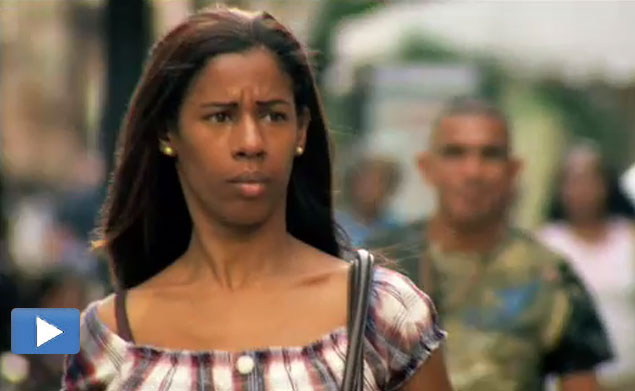
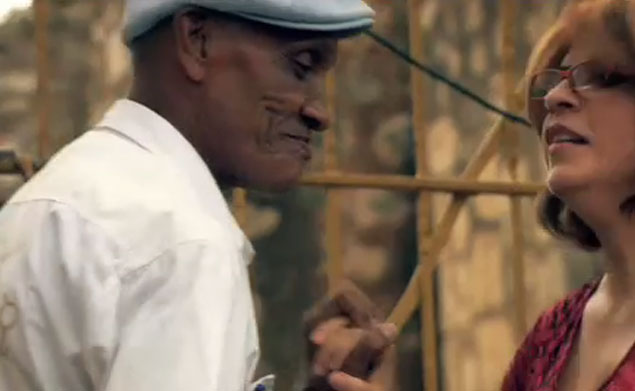
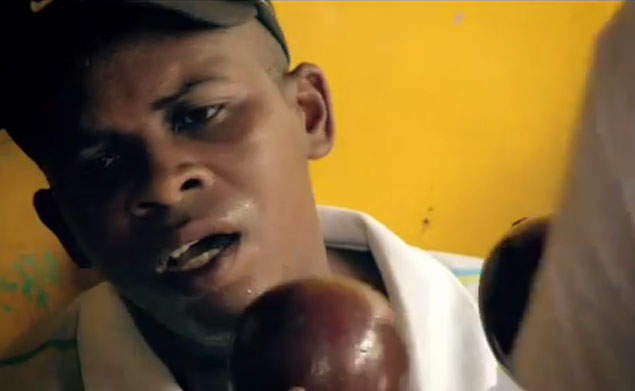
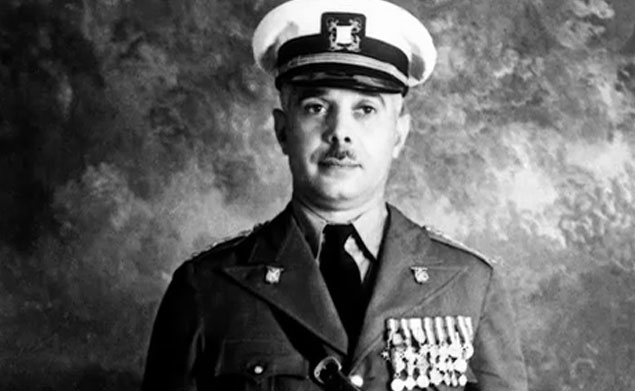
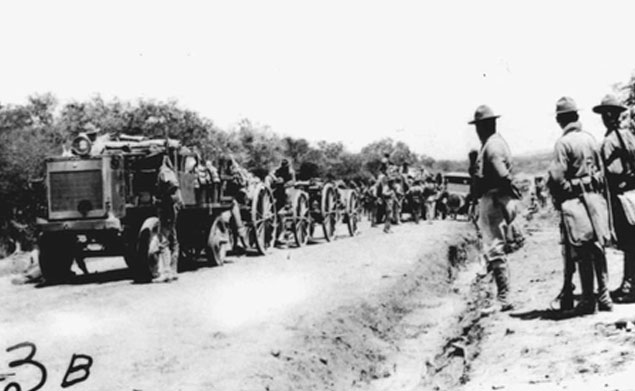
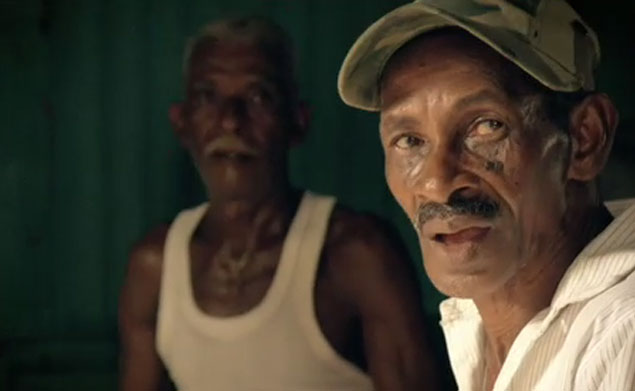
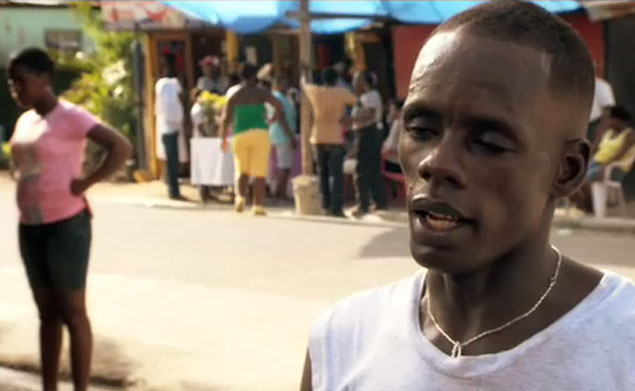

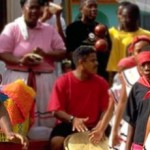
Pingback: Matrixing Raven Symones "I'm not African-American" on Oprah
Pingback: Afrika namanje azalwe kithi : IsiGarifuna in Latin America
UGerald Alexander Lopez Capell
NginguDominican futhi kusuka eSan Francisco de Macoris. Ngingasho ukuthi ngiyavuma iningi le-athikili kepha kunamanye amaphuzu abaluleke kakhulu aphuthelwe. Okokuqala futhi okuphambili asisekho okwengeziwe ngalesosikhathi-ke nezinye izizukulwane zayo empeleni kwangempela, Cishe singomunye wamazwe ngokugcinwa okuphezulu kakhulu kwase-Afrika eCarribean naku-New World. Ngemuva kweBrazil, ICuba neHaiti. Ngokukhethekile sisonke esisibonelo sesangempela samasiko asemasiko aseJamaican abahlukumezekile futhi baseNtshonalanga. Yonke eminye County inamaphakethe okugcinwa kwe-Afrika, njenge-palenqueros kanye nabantu bePacific baseColombia.
Igama elithi Indio alisho ukuthi i-arawak nhlobo, futhi ayihlotshaniswa ngempela, okulingana ngokwengeziwe nethemu browning eJamaica okuyigama nje elinsundu, Leyo ndlela isetshenziswa kanjani ku-D.R futhi ibilokhu ingesinye isikhathi. Eqinisweni nginohlu oluqondile emndenini kagogo wami onguchwepheshe onokuhlinzwa okuqinile kwendabuko, ngokwesiko, Ngokomoya futhi ngisho nasezifundweni ezithile ngenza emndenini wami , ngofuzo. Nokho basho ngokucacile ngakolunye uhlangothi lomndeni wami, ukuthi banomugqa onjalo “Yabantu abahlanganayo baseNdiya” abahlukanisa kusuka “umbala waseNdiya” Yikuphi okulula okusho nsundu. Ungaphinde futhi ulinganise igama elithi Wtih Redbone okuhlotshaniswa ne-U.S ehlotshaniswa ne-IGBO AGANANS kanye nabomdabu, (Kanye ne-IGBO AGMANS lapho kungatholakali cishe ku-D.r) Bambalwa kakhulu uma kuqhathaniswa ne-guinean / Sierra Leonean / Cononanian / Ghanania.
Futhi ama-afric a africa akwazanga ukwamukela i-African-Ness, Ngoba abantu base-Afrika bazibona njengeqembu labo, Futhi lokhu kuphela. Lokhu akusho ukuthi bekungekho bunye, Ekugcineni ubunye bavuke njengonqobayo futhi amaqembu amaningi ahlanganisiwe. Kepha kwizitho eziningi ama-Afrika ahlonipha imingcele yazo yohlanga, ngendlela efanayo ama-Europers ahlukanisa amaJalimane avela esiNgisini, njll. Kwakukhona ngisho nokuxabana okuqinile, ukungathembi nokulwa phakathi kwalezi zinhlalo. Ama-akhawunti amaningi ama-Afrika alwa nomunye emazweni aseMelika asuselwa kumehluko wezwe wakudala. Abantu base-Afrika abangeyena abangakwazi ukubonwa ngentshonalanga nezwekazi eliningi (Africa) Kepha ngeqiniso labo ngokushesha (Iqembu labo). Futhi lokhu kugcinwe ku-D.r kuye kwelinye iphuzu nobuzalwane bethu (Indlu) kanye nezimvula zethu ze-palo, Kanye nokuthambekela kwethu okuqinile kokwahlulela umuntu osuselwa esitsheni sesibongo “Ufana ne-martinez, kahle labo bantu bangamakhanda ashisayo, njll” Lokhu kuvame kakhulu e-Afrika.
Futhi kukhona imininingwane emkhulu impela okuyinto ukuthi sasinenceku enkulu kangaka yokubaleka (Imanzi lokubekwazisa amandla amadolothwayo) Inani labantu kanye nobukhulu obukhulu bamahhala abamnyama ukuthi lokhu kwashintsha izinto kancane. E-Dominican Society lapho abantu base-Afrika baba mahhala bayeka ukuba khona “negro” (Black) futhi baguqulwa babe “Amabele”. Okusho ukuthi Mlandeni wamahhala, Ithemu elinenhlonipho ethe xaxa ngoba ngaphambi kokuba kube mnyama kube umbala, noma into (Impahla) Ngenkathi manje ukuba yiMoreno kusho ukuhlotshaniswa neqembu / izwe langempela (Ama-moors) njengoba lelo zwi lempande leMoreno. Ngingenayo lokhu angisho ukuthi siyi-moors, lapho abanye ngokomlando kodwa lokho akuyona ukwakheka kwethu okukhulu nganoma iyiphi indlela, Ukuthi uMoreno uqhamuka kuleli gama. Futhi uma ulalela iDominican Music, noma uhambe phansi noma yimuphi umgwaqo waseDominian uzobona ukuthi sibize amaMoreno njalo, Abantu batleast Hue futhi mnyama. Ngithola bobabili i-indio ne-moreno, kuya ngokuthi nginombala ongakanani. Ngakho-ke ku-d.r samukele igama elithile elinobuhle komunye nomunye lapho iningi lama-hte aseMelika asebenzisa igama “black”. Ikakhulukazi ngenxa yemvelo yethu njengamahhala / ama-monani ama-Afrika esiqhingini.
Ngingasho futhi ukuthi ngiyavumelana ngokuqinile ukuthi sidalule i-African-ness yethu, Kuyihlazo ukuthi abantu babona kanjani i-Afrika nezinhlanga zayo njengohlobo lwe-miniscule, okuningi ngenxa yemithamo eqinile ye-EurocentRism emphakathini wethu, Kepha lokhu akufani nathi, Ngibona i-prejiduce efanayo torick African-ness yonke inqola ku-diaspora cishe amazinga alinganayo, ngezindlela ezihlukile. Ngakho-ke amaDominican angabambisane nomuntu omnyama we-hue'd njengomuntu ongemuhle, Kepha nokho dlala i-POLO etholakala ngqo evela eCongo-Ghanania namanye amasiko ase-Afrika, futhi uthole i-moutned nge-African Pristtis. Ngenkathi use-U.S ungaba nabantu abathanda umbala wabo futhi mhlawumbe bazise ngisho nangobuhlakani emthethweni wase-Afrika kodwa uWouudl Cridge ngomsindo wezigubhu noma ngaphezulu kuma-D.R angewona ama-ARD. Engxenyeni enkulu ku-D.r Ngijabule kakhulu lapho ukunyakaza okucasulayo okuqalile futhi lokhu kuzoholela endleleni yokuthi sikwazise nge-amout yethu yase-Afrika / ngokomoya ngezwe laso lase-Afrika ngezwe laso lase-Afrika. Umama wethu u-Afrika, hhayi iSpain.
Ugogo ka-Oh noTrujllo wawuseHaiti ngempela, njengoba kwakunguBalaguer's. Ubene-haiti enesikhumba esikhanyayo “Mulatto” Kusuka ku-Elite eHaiti, Ngakho-ke ku-d.r wayengeke abhekane nanoma yimiphi imibandela ngenxa ye “Ukubheka iHaitian”. I-Balagueer ngakolunye uhlangothi yehlela kugogo waseHaider omnyama waseHaiti.
URovert Benjamin
Ngifuna nje ukulungisa okuthile kuMnu. UGerald Alexander Lopez Castel. Ngendlela engivela eCap-haiti, Haiti. Ngiyaqonda ukuthi amaDominican angasebenzisa igama elithi Moreno(s) Noma iyiphi indlela abafuna ngayo. IZwi okukhulunywa ngalo alinakwenza lutho nge-castaño(s), umzala(s), noma aze aqhekeke eJamaica. Actually, Leli gama alihlangene nombala, noma umjaho. Yigama elisetshenziswa ngabantu baseHaiti ngesikhathi sobugqila. Kunjalo “umbango”, futhi kwatholakala egameni lesiFulentshi “ukuxiloza” lokho kusho “Isenzo sesigqila esiphunyukile” noma ngesiFulentshi “isimo senceku ensundu, baphunyukile”. Kuyacaca ukuthi igama lesiFulentshi “umbango” lokho kusho “-nsundu” ngesiNgisi, futhi umncintiswano waseSpain ubelokhu ekhohlisa abantu abaningi; esimweni esinjalo, kusho kuphela “baphunyukile” ngesiNgisi, “baphunyukile” ngesiFulentshi, futhi “baphunyukile” ngeSpanishi, Ngakho-ke leli gama selilahlekile ekuhumusheni eDominican Republic ngenxa yendlela amaDominic awethule ngazo emasikweni abo. Ngiyabonga!
Pingback: I-afro-latina Photoshoot i- AZLDE Valerio | I-Wayfarette